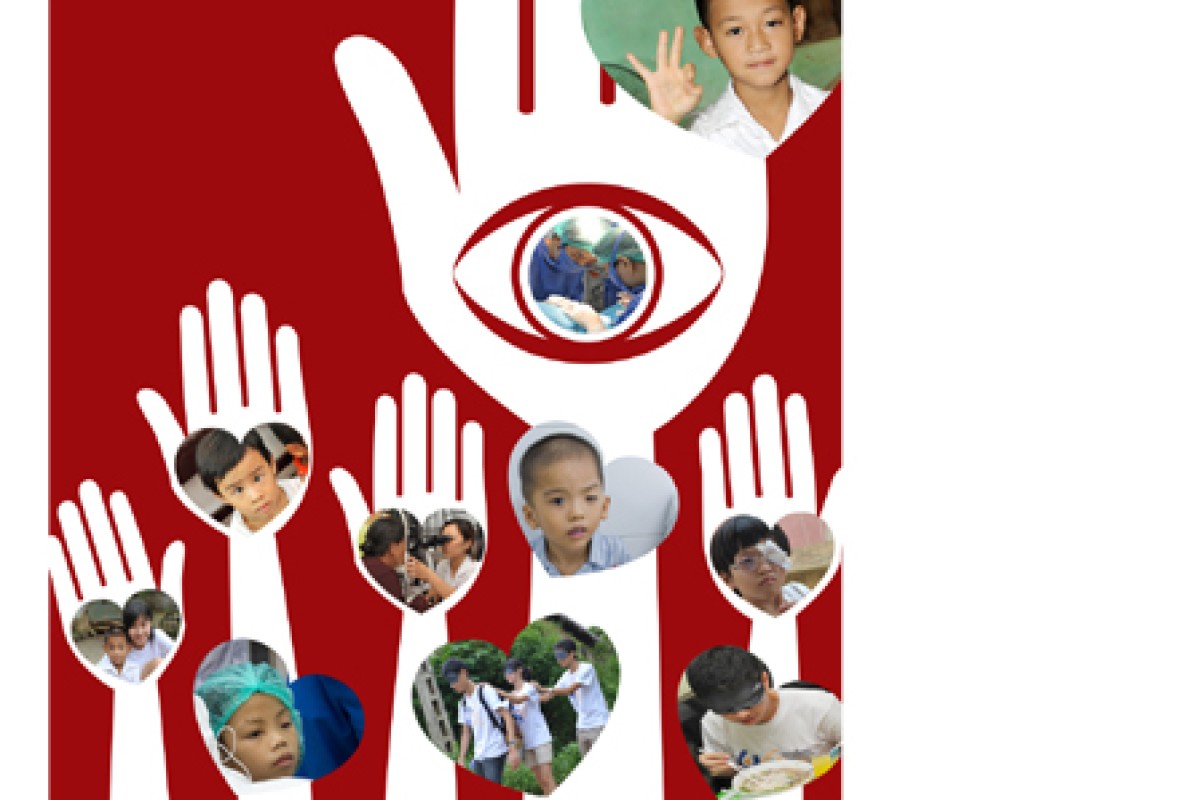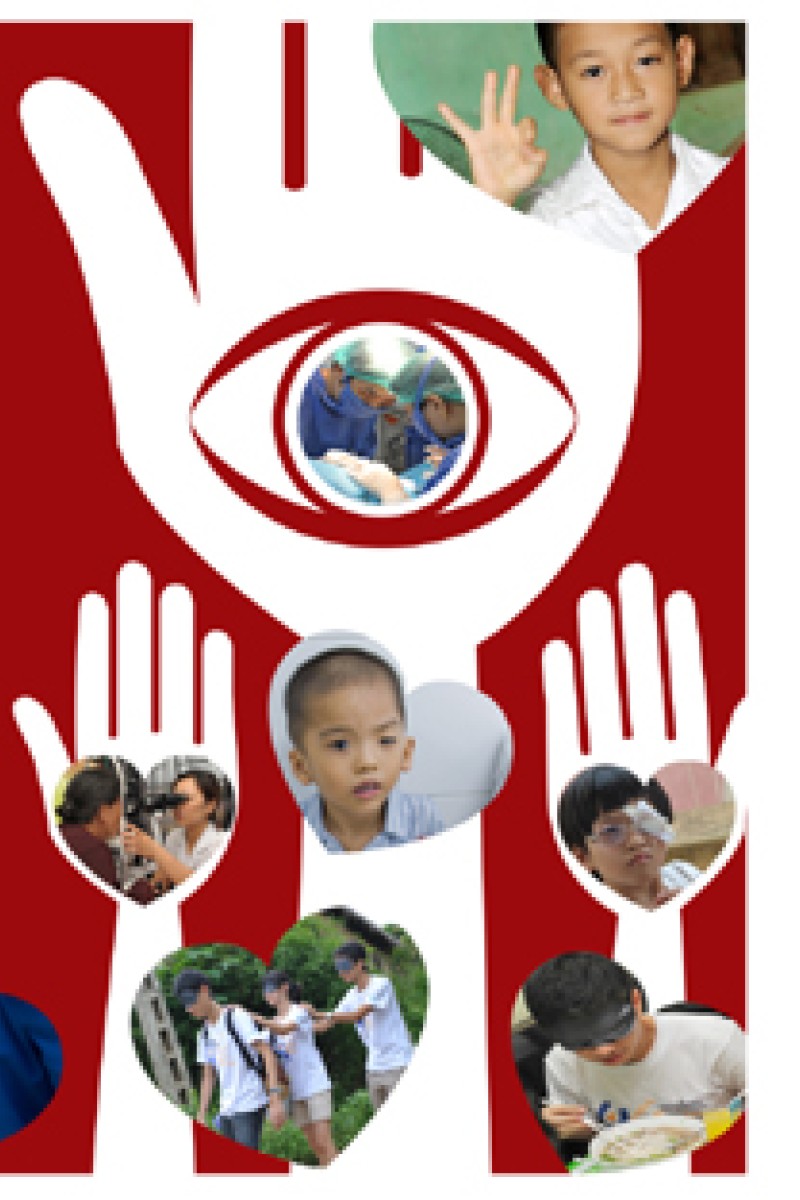
A guide tells them which direction to step, turn, or pause. With each and every stride, they learn to trust the voice and rely on their sense of touch. Nevertheless, their hearts are still pounding. Finally, the guide tells them to stop. The entire group anxiously peel off their blindfolds ...
'Wow, it's so bright! I'm so lucky to have vision,' exclaims Chloe Nguy, 17, a student from Hong Kong International School (HKIS). Chloe's group are not dare-devils playing chicken with the oncoming traffic, nor are they looking for cheap thrills. They are Orbis student ambassadors. And they are playing a game in which they 'experience' what it is like to be blind.
They were sent to Vietnam on a mission: 'Spread Hope and Save Sight.'
Like all our senses, vision is often taken for granted. But for many people in developing countries, eye care is a luxury they cannot afford. Even wealthy people have poor knowledge about vision health which leads to complications from the lack of early detection.
Orbis, a non-profit organisation founded in the United States, specialises in fighting blindness in developing nations. Each year, they run fund-raising campaigns in Hong Kong and schools have joined the activities.
Two students from each of the three schools raising the most money are awarded all-inclusive trips to get a first-hand look at what is being done to relieve people's suffering and transform their lives.
This year, Orbis sent six students - from HKIS, Ying Wa College and Hoi Ping Chamber of Commerce Secondary School - to Vietnam. They visited Hanoi, the country's capital, and Thanh Son, during their four-day trip.
The student ambassadors visited the Vietnam National Institute of Ophthalmology, one of only two hospitals in the country which provides proper eye care for children. They were taken to the paediatric department to observe pre- and post-operation examinations.
'I have great sympathy for the patients,' says Justin Lam, a 17-year-old student from Hoi Ping Chamber of Commerce Secondary School.
'They must be brave in order to have eye surgery.'
Shortly afterwards, in what was probably the highlight of the trip, they donned full body suits, hairnets, masks, and rubber slippers to view a live strabismus surgery. Strabismus is an eye condition where patients cannot align their gaze on a single point. The surgery costs about US$100, equivalent to about two months' salary for a Vietnamese.
'I've taken biology courses before and had to dissect animals,' says Lee Nam-kit of Ying Wa College. 'But I've never seen something done to human flesh. It was a memorable experience.'
The following day, the group went to a so-called referral hospital in Thanh Son, capital of the northeastern Phu Tho province. It is a mountainous region and took them three hours to get there. The hospital was not air-conditioned and was severely overcrowded.
There were a lot of patients, both young and old, hoping to receive free eye care. The students did their part - they pointed to objects on an illuminated screen, and the patients had to identify them correctly.
The young ambassadors then visited the homes of three children recovering from various eye ailments. They spent some time talking with them and gave them gifts.
Phan Ba Quang had been operated for ptosis, which would have normally cost his parents three months' salary. Ptosis, also known as 'droopy eye', occurs when the upper eyelid is too weak, causing it to droop. If left untreated, more serious complications may develop.
Thanks to an Orbis campaign, however, Quang, along with 14 other children, were given free surgery. 'I wish I would become normal so no one will tease me,' Quang said before his surgery.
The duties of the student ambassadors do not end once they return to Hong Kong. As ambassadors 'we must continue to care and have compassion towards the less-fortunate,' says Joyce Yam, 16, from HKIS. All the students said they cherished every moment of their trip which broadened their horizons and taught them to have more empathy for the less fortunate.
It was a truly eye-opening experience for everyone involved.
For more information, visit www.orbis.org
<!--//--><![CDATA[// ><!-- PDRTJS_settings_2498682 = { "id" : "2498682", "unique_id" : "default", "title" : "", "permalink" : "" }; //--><!]]>